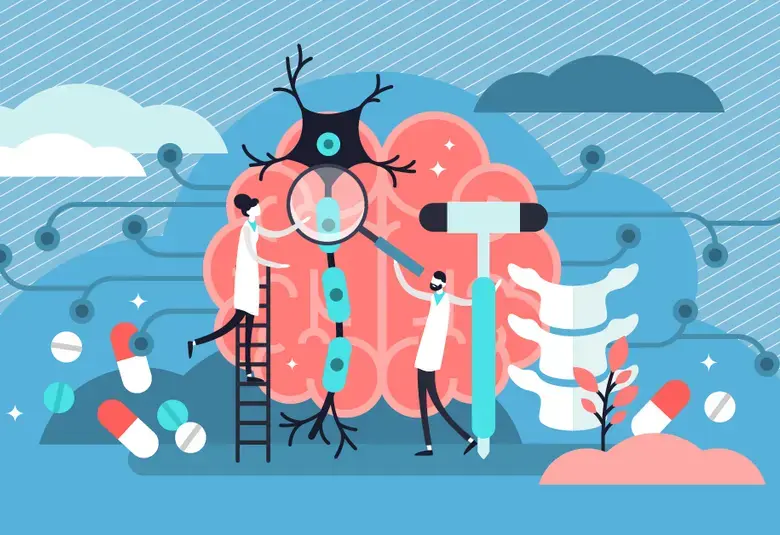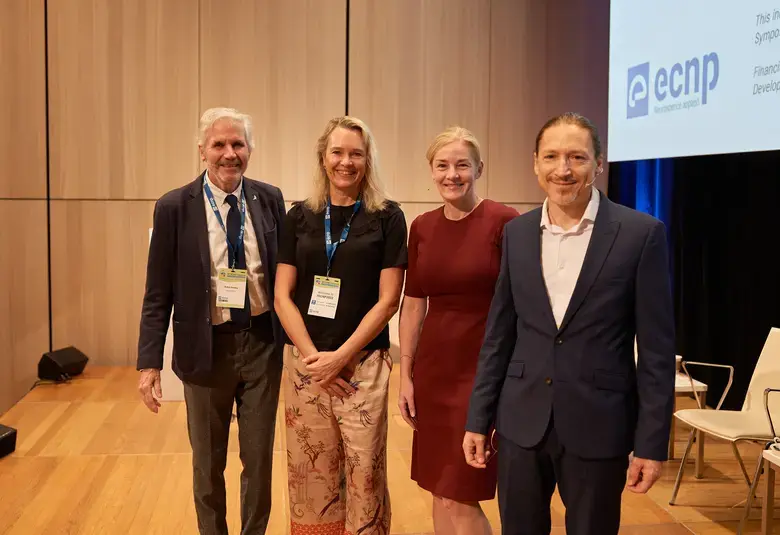Depression is highly prevalent in individuals with cancer – the prevalence rate has been roughly estimated at 38-58% if we cover both depression and other syndromes1. Depression can result in morbidity and mortality above and beyond that of the cancer itself and is a diagnosis that should not be missed.
“Cancer” is generally seen as an umbrella term that carries with it an intense psychological pallor of untreatability, imminent demise, and major loss or grief. This, however, does not take into account the fact that prognoses for different cancers can differ significantly. In actual fact, even for cancer that is ostensibly in the same organ, cancers arising from different cells can have significantly different prognoses and lifespan expectations. Nevertheless, cancer is still regarded as one of the illnesses with a great psychological impact, one of which being the emergence of depression or depressive symptoms.
Depression is highly prevalent in individuals with cancer – the prevalence rate has been roughly estimated at 38-58% if we cover both depression and other syndromes1. Depression can result in morbidity and mortality above and beyond that of the cancer itself and is a diagnosis that should not be missed. It is important that we assess for depression in individuals with cancer, as full-blown depressive episodes can impair treatment efforts and reduce adherence 2. Moreover, there is a spectrum of psychological reactions towards cancer, from normal psychological reactions, grief reactions, adjustment disorders, all the way to depression. However, there are multiple diagnostic dilemmas that must be considered due to the interplay of biological illness, psychological sequelae, and side effects of medication. In each client referred from an oncology ward with depressive symptoms, the clinician’s train of thought should be conceptualized as follows: Is the depression due to the biological effects of cancer itself; is it due to the biological effects of the treatment for cancer; is it due to the psychological effect of having cancer; or is it a combination of everything?
Cancer itself can most certainly result in depression biologically, and it can be seen as the “great pretender”. The DSM-5 diagnosis of major depressive disorder can be somewhat arbitrarily divided into “biological” and “psychological” symptoms, which provides us reasonable guidance as to the aetiology of depressive symptoms presenting in cancer sufferers 3.
Cancer itself can most certainly result in depression biologically, and it can be seen as the “great pretender”. The DSM-5 diagnosis of major depressive disorder can be somewhat arbitrarily divided into “biological” and “psychological” symptoms, which provides us reasonable guidance as to the aetiology of depressive symptoms presenting in cancer sufferers 3. Many of the “biological” symptoms of depression, including low energy levels, poor sleep, loss of appetite, and poor concentration or attention span, are common to both depression itself and a growing tumour with its biological effects and hence are less significant compared to the “psychological” symptoms including the two cardinal features of low mood and anhedonia. To this end, Endicott came up with a set of criteria to “replace” biological symptoms with psychological symptoms of depression in cancer patients 4. One method of disentangling depression caused directly by the biological effects of cancer itself would be to observe the effect of biological tumour-shrinking treatment on depression. If there is a clear dose-response relationship between tumour size attenuation and depressive symptoms, it may be safer to say that it is primarily biological in origin.
Working on the angle of depression being secondary to treatments, many chemotherapies cause depression or syndromes similar to it. Hence it is crucial that we need to observe if corticosteroids, vincristine, vinblastine, procarbazine, L-asparaginase, amphotericin B, interferon, and tamoxifen are being used1. Unfortunately, there is very little that can be done if depressive symptoms are truly resultant as a side effect, but oncology clinicians can benefit by working in closer multidisciplinary practise with psycho-oncology psychiatry teams to decide an optimum level of chemotherapy that can both alleviate cancer without being at the expense of individuals’ mental health.
Firstly, there can be grief reactions from the loss of biological functioning and social roles after having cancer5. Secondly, there is also the adjustment that results in having a lot of medical treatment, appointments, and radical changes in lifestyle that entail. Thirdly, there is the transition into the sick role, which is a sociological, not a biological role.
Psychologically, there can be depression or depressive symptoms as a sequelae of the cancer diagnosis. Firstly, there can be grief reactions from the loss of biological functioning and social roles after having cancer5. Secondly, there is also the adjustment that results in having a lot of medical treatment, appointments, and radical changes in lifestyle that entail. Thirdly, there is the transition into the sick role, which is a sociological, not a biological role. Despite being absolved of responsibilities, there is always the struggle of wanting to become better and needing to put effort into it, which can be very tiring for those with terminal illnesses. Lastly, there is also the risk of traumatisation; the repeated exposure to medical procedures, hospitals and the high prospect of failure with cancer treatments can markedly traumatise individuals and cause hypervigilance and avoidance behaviour, which can complicate existing depressive illnesses 6,7.
Nevertheless, from a historical point of view, it is crucial to take a comprehensive history. We would need to find out also, for familial cancers, if there have been many others in the family who have died of cancer. This would no doubt create a very different psychological reaction compared to individuals for whom it was de novo in the family tree. From a social history point of view, it is crucial to find out what the patient’s goals, life values, and aspirations are. The meaning of loss in cancer is very different for individuals who are in the midst of a generative phase of their life, as a young adult, for a newly married individual, and for someone who has successfully retired and is living out their twilight years. Cancers of similar biological severity and psychological burden from a symptomatology point of view can impact different groups very differently, when we approach them from different points of view.
Further investigations are no doubt crucial in working up individuals who have comorbid cancer and depression. Apart from standard blood investigations, depending on neurological symptoms, it may be essential that we assess prognostic markers for tumour growth if we want to see if there are any relationships between depressive symptoms progression and cancer progression 8. This can include imaging of the relevant body organ, which would usually be Magnetic Resonance Imaging, as it provides far better visualisations of soft tissue.
It is also crucial that we choose suitable medications for individuals with depression
It is also crucial that we choose suitable medications for individuals with depression. They are bound to experience significant side effects both from their cancer and from their chemotherapy regimens9, and we need to weigh up judiciously the risks and benefits of psychiatric medications, as they may not be as vital and life-prolonging as the chemotherapies that they are on. The choices would definitely fall towards an agent that does not have significant side effects, especially gastro-intestinal. In this respect, selective serotonin reuptake inhibitors, with their host of GI side effects, may be less tolerable choices, despite having comparable efficacy10.
The choices would definitely fall towards an agent that does not have significant side effects
Finally, there is a need to provide a greater biopsychosocial array of interventions for cancer sufferers, as there are multiple cognitive behavioural and mindfulness-based therapies 11 that can help individuals either attend to the negative thoughts that accompany cancer development or facilitate acceptance of the disease and the new roles that lie thereof 12. Cancer is also an intensely spiritual time for some, as they contemplate their mortality and prepare for their potential passing into their religion’s specific hereafter, and chaplaincy services must be provided to ease this transition. Referrals to relevant social organisations to provide financial and logistics support, especially for those who are of relevant socioeconomic status or who may have dependents who will potentially lose their breadwinner, can be done with immediate effect too.
We would like to end on a note of cautious optimism; cancer can be treated, and the psychological sequelae of cancer can be treated with relevant biological and psychological therapies, but underlying all of this, there needs to be generous portions of empathy, support, and compassion, as cancer is a difficult diagnosis to break and will inevitability precipitate grief reactions.




